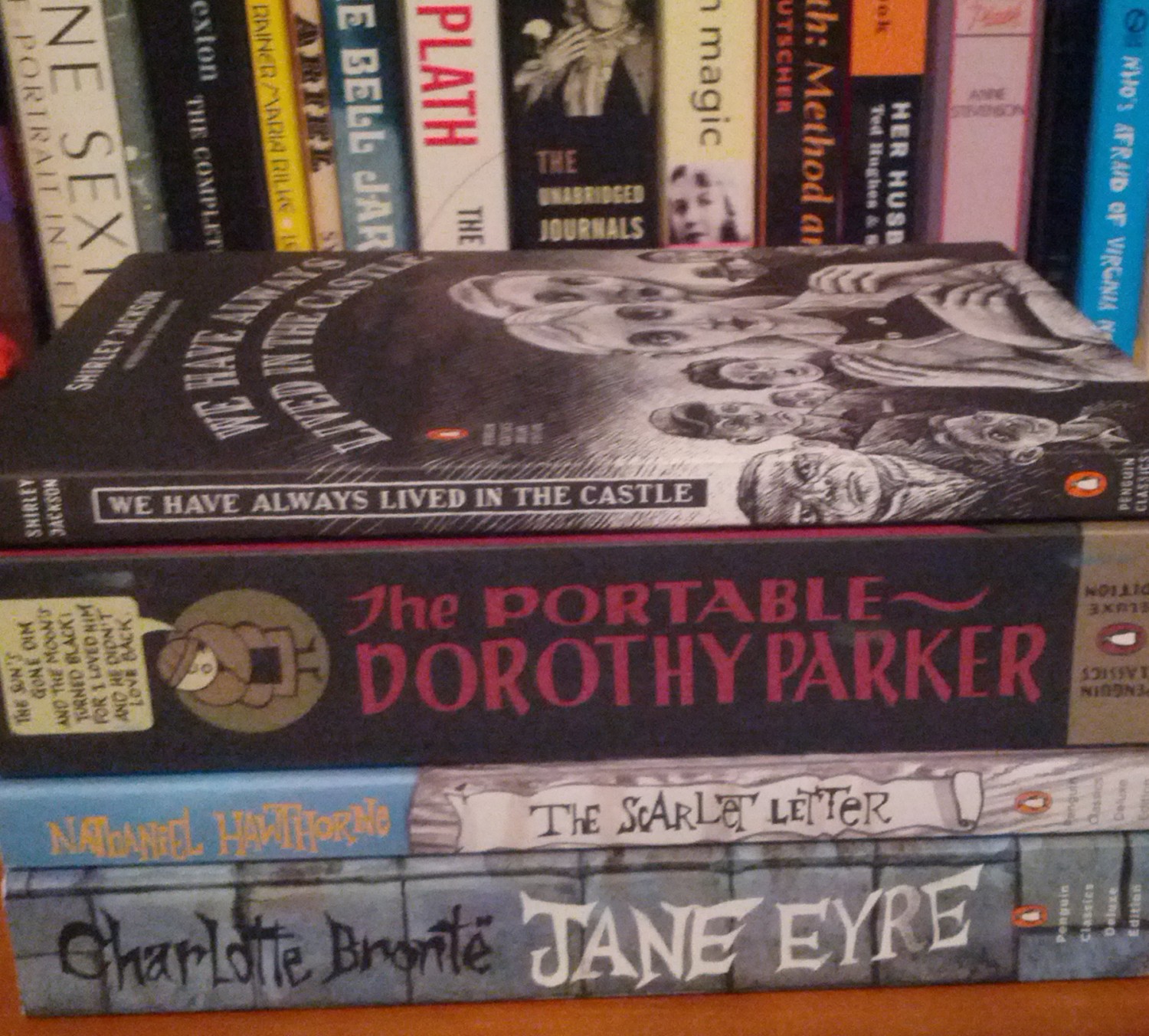Vanity: lack of real value; hollowness; worthlessness: the vanity of a selfish life (dictionary.com)
When I decided to join Allie’s read-along of Vanity Fair, it was really on a whim as I actually had no idea what the novel was about. Right away, I was pleasantly surprised by the humor I encountered. I should not have been surprised as this work is a satirical piece; Thackeray’s commentary on 1800s English society. Gad! I like this guy! He is giving voice to what I have alluded to in other posts regarding novels set in this period: the ridiculous nature of a certain class of this society, how they amble idly through life, often living in the clouds and above their means to disastrous ends.
I admire the narration of this novel because the characters are puppets on Thackeray’s string. It reminds me of the Shakespeare quote from As You Like It: “All the world’s a stage and all the men and women merely players.” I am quite fond of Becky Sharp, although not all readers are. In truth, I am not sure why she is singled out as having the worst reputation since all of the principle players in Vanity Fair are flawed and hallow in some way, even Amelia and Dobbin. It is only a matter of to what degree.
This is a such society of contradictions. For example, the rich Miss Crawley prides herself on her liberal behavior. She tells Rebecca the following: “That was the most beautiful part of Lord Nelson’s character … he went to the deuce for a woman. There must be good in a man who will do that. I adore all imprudent matches … what I like best, is for a nobleman to marry a miller’s daughter … I wish some great man would run away with you, my dear.” But, when her favorite nephew, Rawdon, makes that exact imprudent match and marries Becky, Miss Crawley turns her back on them both!
It is interesting reading this novel after War and Peace. Although two very different works, there are uncanny correlations between the characters of these two books. Jos Sedley and Pierre, Amelia and Marya, Rebecca and both Natasha and Helene, etc. Vanity Fair was originally published in monthly installments in 1848 while War and Peace was not published until 1869. Was Tolstoy influenced by Thackeray in some way?
Some favorite Thackeray quotes so far:
“… they hated each other cordially …”
“What a charming reconciler and peacemaker money is.”
“Yes, if a man’s character is to be abused, say what you will, there’s nobody like a relation to do the business.”
“I wonder is it because men are cowards in heart that they admire bravery so much, and place military valour so far beyond every other quality for reward and worship?”
“Her mamma ordered her dresses, her books, her bonnets, and her ideas for her.”


I see the similarities between War and Peace also! Interesting that Thackeray published first. I hadn’t considered that…
When I looked into the publishing dates, I automatically assumed that Tolstoy published first. I was surprised to see it was Thackeray!
Those quotes have made me want to read Vanity Fair. Sounds like the wit of Austen!
I found Thackeray to be quite witty and think you just might like Vanity Fair. But, I have actually only ever read one (gasp) Austen: Emma (which I really loved). All her other novels are on my project list …
I have to do 2 novels for advanced english higher dissertation, and i picked war peace cause i love it and Tolstoy and my teacher told me to do vanity fair because that also correlates with the argument I’m choosing; how different authors from different parts of the world view war and a certain war. But i hadn’t read vanity fair and i wasn’t sure after reading the plot summary that it would parallel War and Peace’s protagonists enough…but you’ve laid me to rest, knowing someone else thinks they have certain similarities and very interesting that Thackeray did it first! xxxx 🙂